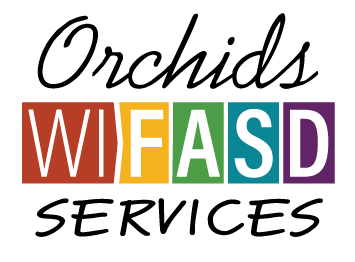Over one million children per year in this country are delivered to women who have used alcohol, tobacco, marijuana, or illicit drugs during pregnancy. Many of these children are brought into foster and adoptive homes. This program will explore the biological and environmental factors that impact the ultimate development of substance-exposed children, provide a framework for understanding the behavior and learning difficulties of children affected by prenatal substance exposure, and discuss how this framework can be applied to the development of treatment strategies as well as interventions at home and at school.
At the completion of this session the participant will be able to:
1. Discuss the impact of prenatal substance exposure on neonatal outcome
2. Name three characteristics of Fetal Alcohol Syndrome
3. Analyze the impact of prenatal substance exposure on the long term cognitive and behavioral development of the child.
4. Discuss an overall strategy for developing interventions required by children affected by substance abuse.
Ira J. Chasnoff, M.D., an award-winning author, researcher and lecturer, is president of NTI Upstream and a Professor of Clinical Pediatrics at the University of Illinois College of Medicine in Chicago. He is one of the nation’s leading researchers in the field of child development and the effects of environmental factors on the developmental trajectory of children and adolescents. Dr. Chasnoff’s work encompasses community approaches to the integration of behavioral health services into primary health care, the schools, and the other multiple systems that serve children and families. Dr. Chasnoff has served several U.S. presidential administrations on committees and commissions dedicated to organizing and coordinating services for children and families across the nation and developing policies and procedures for addressing the needs of children at risk from prenatal and postnatal trauma. He also has worked with a wide range of States across the nation and internationally in developing universal outreach and early intervention programs for children and families affected by trauma or substance abuse.
Dr. Chasnoff received his medical degree from the University of Texas Health Science Center at San Antonio, which in 1991 awarded him its first Distinguished Alumnus Award. He is the author of numerous research articles regarding the long-term cognitive, behavioral, and learning outcomes of high-risk children, and his article on racial and social class bias in the health care system has been cited as a landmark study by the American College of Obstetricians and Gynecologists. Dr. Chasnoff has authored twelve books, which have received numerous awards and one of which has been recognized by The Hague International Court. Dr. Chasnoff’s books explore the biological and environmental factors that impact the ultimate development of high-risk children and presents practical strategies for helping children reach their full potential at home and in the classroom. His newest book, FASD and the Online World, examines the scientific basis of risk children and teens face in their interactions on the Internet. Dr. Chasnoff is a regular contributor to Psychology Today, writing about high-risk children and their families. The recipient of several awards for his work with women, children, and families, Dr. Chasnoff for several years has been selected by a poll of physicians across the nation for listing in America’s Best Doctors, cited for his ability to translate complex medical and psychosocial issues into relevant policy that guides the delivery of quality services. Dr. Chasnoff has been active in establishing comprehensive family intervention programs for children in Australia, Denmark, Portugal, Canada, Vietnam, the former Soviet Union, and across the United States and has lectured on this topic around the world.
Continental breakfast and lunch will be included at the conference.
Please refrain from bringing children into the conference room as no childcare is provided.
